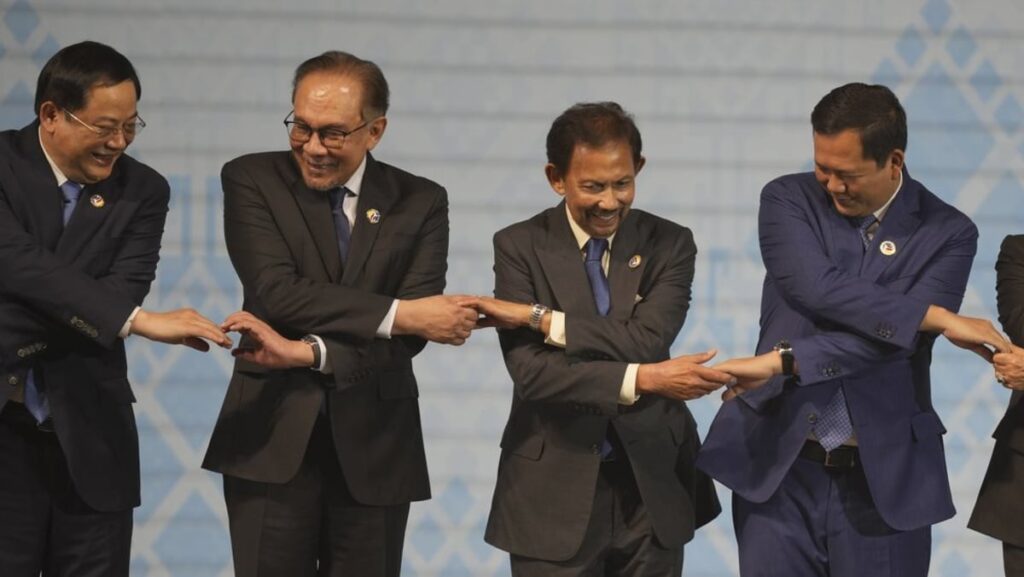After the trip, Sultan Ibrahim praised China’s stance on Israel with regards to the current war in Gaza, and said Malaysia was aligned with China on the issue of peace in Palestine.
At the same time, however, China claims almost the entire South China Sea, while several ASEAN members including Malaysia, the Philippines, Brunei and Vietnam have overlapping claims.
Mr Joshua Kurlantzick, a senior fellow for Southeast Asia at the Council on Foreign Relations in the US, told CNA that Malaysia will be forced to balance pursuing stronger ties with China and leading efforts to defend its and ASEAN members’ sovereign rights in the South China Sea.
“There will probably be some point, such as a dispute over blocks of oil or gas development in the South China Sea, at which Malaysia’s multilateralism and warm approach to China will be tested,” said Mr Kurlantzick.
Ms Lin outlined that Malaysia, as both the current country coordinator for ASEAN-China relations and a claimant state, has a significant stake in advancing the Code of Conduct negotiations, which ASEAN aims to finalise by 2026.
“Malaysia will likely prioritise pushing these talks forward, emphasising ASEAN’s collective interest in ensuring a rules-based approach to the maritime disputes,” said Ms Lin.
“However, if Malaysia is perceived as leaning too closely toward China, it may face challenges in maintaining the trust of other claimant states, particularly the Philippines and Vietnam, which are more assertive in defending their territorial claims,” she added.
MALAYSIA TO BE MORE OUTSPOKEN ON MYANMAR CRISIS
At events and on social media in May and June this year, Mr Anwar stressed that ASEAN member states need to unite in facing the crisis in Myanmar.
He hinted he would push for ASEAN to be tougher on Myanmar, where pro-democracy guerrillas and ethnic minority armed forces are battling the country’s military, which took power in 2021 after ousting the elected government of Aung San Suu Kyi.
Weeks after seizing power during the 2021 coup, the junta agreed to a “five-point consensus” plan aimed at restoring peace, but ignored it and carried out a bloody crackdown on dissent and armed opposition to its rule.
Ms Lin of the ISEAS–Yusof Ishak Institute posited that Malaysia, unlike the current chair Laos, is likely to advocate for stronger actions by ASEAN, in line with its historically vocal stance on human rights.
“Unlike some of its more reserved ASEAN counterparts, such as the current chair Laos, Malaysia has been outspoken about the crisis in Myanmar, particularly following the 2017 Rohingya repression, where it criticised ASEAN’s weak response,” she said.
https://www.channelnewsasia.com/asia/malaysia-asean-chairman-china-brics-myanmar-south-china-sea-4668091


